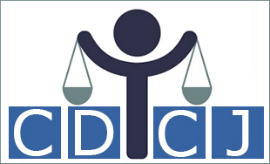The Committee of Ministers of the Council of Europe has adopted a set of guidelines for the 47 member States to help them improve the functioning of national systems of legal aid in the fields of civil and administrative law.
The Committee of Ministers stresses the importance of establishing an accessible, effective, sustainable and reliable legal aid scheme allowing individuals to effectively exercise their right of access to justice.
These guidelines, prepared by the European Committee on Legal Co-operation, invite member States to take a number of measures:
- in order to resolve disputes quickly, provide better information on existing legal rights, obligations and remedies and improve access to legal advice and assistance (e.g. through one-stop shops in public services);
- to ensure the quality of legal aid schemes and legal services provided by legal aid providers (appointment criteria, evaluation, codes of ethics, satisfaction surveys, disciplinary measures etc);
- to examine an applicant's resources and the likelihood of successful legal proceedings and inform her/him of the alternatives to legal aid in case of refusal or non-eligibility;
- with regard to legal aid providers, emphasis is placed in particular on geographical distribution, diversity and access, especially for vulnerable people.
Finally, member States are encouraged to collect and analyse data to better understand the legal needs of the population and how they interact with legal aid services.




